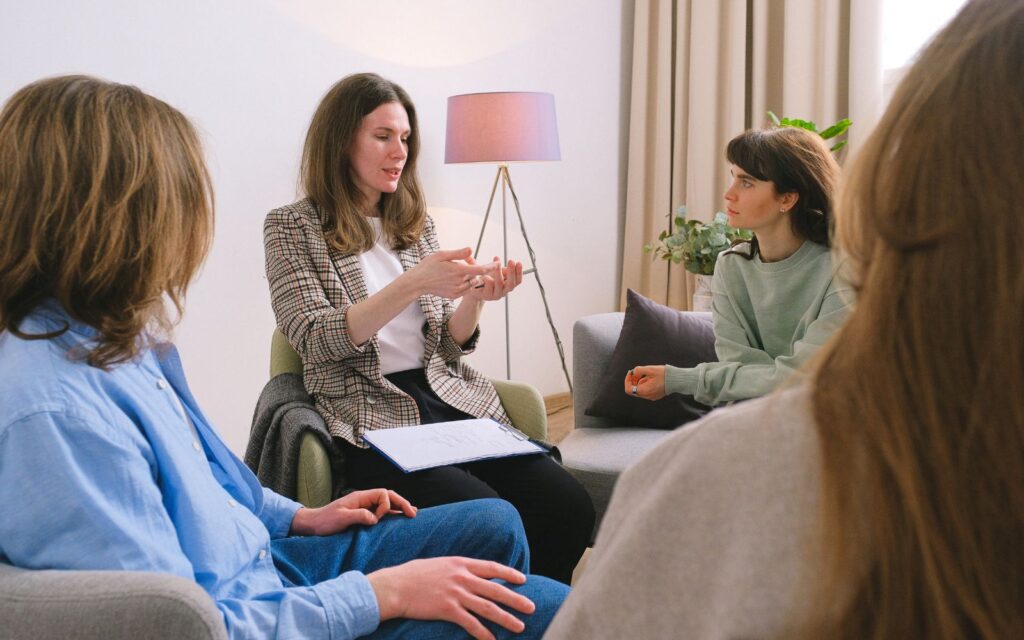How to Decompress Mentally After a Busy Day: 7 Eco-Friendly Ways to Restore Your Inner Balance

Did you know that 76% of working adults report feeling emotionally drained at the end of their workday? In our hyperconnected world, the challenge of decompressing mentally after a busy day has become more critical than ever for maintaining both mental health and work-life balance.
The constant barrage of notifications, deadlines, and responsibilities can leave our minds racing long after we’ve left the office. This mental residue doesn’t just disappear when we walk through our front door-it follows us home, affecting our relationships, sleep quality, and overall well-being.
In this guide, you’ll discover seven evidence-based, eco-friendly strategies that will help you to decompress mentally after a Busy Day.
As someone who spent years struggling with the mental hangover of busy workdays, I’ve tested these methods extensively and found them to be both sustainable and profoundly effective.
Key Takeaways
- Nature-based decompression techniques can reduce cortisol levels by up to 50% within 20 minutes
- Digital boundaries are essential for mental transition from work mode to personal time
- Mindful rituals using eco-friendly practices create powerful psychological cues for relaxation
- Physical movement in natural settings provides dual benefits of exercise and stress relief
Understanding the Science Behind Mental Decompression

The process of decompressing mentally after a busy day isn’t just about relaxation-it’s about allowing your nervous system to shift from a state of sympathetic activation to parasympathetic recovery. Research from Stanford University shows that our brains need dedicated transition time to process the day’s information and reset for optimal functioning.
When we fail to decompress properly, stress hormones like cortisol remain elevated throughout the evening. This creates a cascade of negative effects including disrupted sleep patterns, decreased immune function, and impaired cognitive performance the following day.
The good news is that intentional decompression practices can reverse these effects quickly. Studies indicate that even 15-20 minutes of focused relaxation can significantly lower stress markers and improve overall mental clarity.
7 Eco-Friendly Ways to Decompress Mentally After a Busy Day

Create a Green Transition Ritual
Establishing a consistent routine signals to your brain that it’s time to shift gears. Start by changing into comfortable clothes made from organic materials like bamboo or hemp-these natural fibers are not only sustainable but also more breathable and soothing against the skin.
Light a candle made from soy or beeswax while avoiding synthetic fragrances that can actually increase stress levels. The gentle flicker of candlelight naturally slows your breathing and creates a calming atmosphere that supports mental decompression.
Practice Grounding in Nature
Step outside barefoot if possible and spend at least 10 minutes connecting with the earth. This practice, known as “earthing,” has been shown to reduce inflammation and promote feelings of well-being.
If you don’t have access to a yard, even sitting by an open window or on a balcony with plants can provide similar benefits. The key is engaging your senses with natural elements rather than artificial stimuli.
Implement a Digital Sunset
Create boundaries around technology use in the evening by establishing a “digital sunset” one hour before bedtime. This means turning off all screens and avoiding the blue light that interferes with melatonin production.
Instead of scrolling through your phone, try reading a physical book or journaling with a pen and paper. This analog approach to decompressing mentally after a busy day helps your brain truly disconnect from the day’s digital overwhelm.
Use Breathing Techniques with Essential Oils
Combine deep breathing exercises with eco-friendly aromatherapy using essential oils from sustainably sourced plants. Lavender, chamomile, and bergamot are particularly effective for promoting relaxation and mental clarity.
Practice the 4-7-8 breathing technique: inhale for 4 counts, hold for 7, and exhale for 8. Repeat this cycle 4-6 times while diffusing your chosen essential oil to enhance the decompression effect.
Engage in Mindful Movement
Gentle yoga, stretching, or walking can help release physical tension while clearing mental clutter. Focus on movements that feel intuitive and avoid high-intensity exercises that might elevate stress hormones further.
Consider practicing yoga on a mat made from natural materials like cork or natural rubber. This sustainable choice supports both your well-being and environmental values.
Create a Gratitude Garden
Whether you have an outdoor space or just a windowsill, tending to plants provides therapeutic benefits while supporting eco-friendly living. The act of watering, pruning, or simply observing plants helps shift your focus from daily stressors to the present moment.
Research shows that caring for plants reduces cortisol levels and promotes feelings of accomplishment and peace. Even five minutes of plant care can significantly impact your ability to decompress mentally after a busy day.
Prepare for Tomorrow Mindfully
End your decompression routine by setting intentions for the following day using sustainable practices. Write in a journal made from recycled paper or use a reusable whiteboard to jot down three priorities for tomorrow.
This practice helps prevent the mind from racing with tomorrow’s concerns while maintaining an eco-conscious approach to organization and planning.
Practical Takeaways
- Set a consistent “work-to-home” transition time of at least 15 minutes daily
- Create a technology-free zone in your bedroom to improve sleep quality
- Keep a small plant or herb garden for instant access to nature-based stress relief
- Invest in sustainable, comfortable loungewear to signal relaxation to your body
- Practice one breathing technique daily to build your stress-management toolkit
Summary
Decompressing mentally after a busy day is both an art and a science that requires intentional practice and sustainable habits. By implementing these seven eco-friendly strategies-from creating green transition rituals to practicing mindful movement in nature-you can effectively shift from the stress of your workday to a state of calm restoration.
The key is consistency and choosing methods that align with both your wellness goals and environmental values. Start with just one or two techniques and gradually build your personalized decompression routine that supports both your mental health and the planet.
Ready to transform your evenings? Try implementing one of these strategies tonight and notice how it affects your sleep quality and tomorrow’s energy levels. Share your experience in the comments below and let us know which technique worked best for you.
FAQs About Decompressing Mentally After a Busy Day
How long should I spend decompressing mentally after a busy day?
- Aim for 15-30 minutes of dedicated decompression time
- Start with just 5-10 minutes if you’re new to the practice
- Consistency matters more than duration-even brief daily rituals are beneficial
- Adjust timing based on your schedule and stress levels
What if I don’t have access to outdoor space for nature-based decompression?
- Bring nature indoors with houseplants, natural lighting, or nature sounds
- Use a small herb garden on a windowsill or balcony
- Try nature documentaries or apps that provide forest sounds
- Practice visualization techniques involving natural settings
Can decompressing mentally after a busy day improve my sleep quality?
- Yes, proper decompression significantly improves sleep onset and quality
- Evening relaxation routines signal to your body that it’s time to wind down
- Reduced cortisol levels from decompression promote deeper, more restorative sleep
- Consistent practice can help regulate your circadian rhythm naturally
Are there any eco-friendly products that can enhance my decompression routine?
- Organic cotton or bamboo loungewear and bedding
- Soy or beeswax candles instead of paraffin-based options
- Essential oils from sustainably sourced, organic plants
- Cork or natural rubber yoga mats for mindful movement
How do I maintain my decompression routine when traveling or during busy periods?
- Create a portable decompression kit with essential oils and comfortable clothes
- Practice breathing techniques anywhere-they require no special equipment
- Use hotel plants or step outside for brief nature connections
- Adapt routines to available time and space while maintaining core principles





